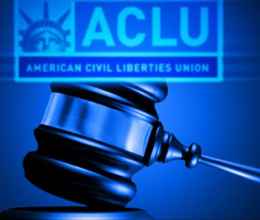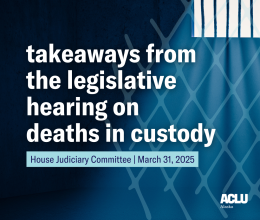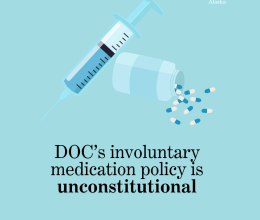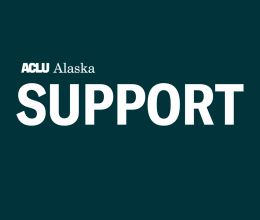
Almost two months into the 32nd Alaska Legislative Session, the state’s lawmakers have gotten off to a bumpy start in tackling all the issues facing our state. The House did not organize until Feb. 18, when a multi-party coalition formed with Rep. Louise Stutes as Speaker, allowing the chamber to begin formal legislative work. This majority coalition should prevent passage of most, if not all, detrimental legislation that we’re watching, as well as increase the chances of positive policy advancements.
The Senate organized much earlier around a Republican majority, but a few committees have dedicated precious time to hear legislation that would politicize the state’s judicial selection system, restrict voting rights, and curtail abortion rights.
We are still waiting for the legislature to answer many big questions, and like much of Alaska, we are still eagerly waiting to the legislature’s solutions to solve the state’s looming fiscal crisis. With two months left in the legislature’s schedule, we wanted to share updates on civil rights and liberties legislation in Juneau so far this year.
Abortion
On Tuesday, the Senate Health & Social Services (HSS) Committee will take up a bill to undermine Alaskans’ constitutional right to abortion care. SJR 4, sponsored by Sen. Shelley Hughes, would erode the Alaska Constitution’s privacy protections and equal protection guarantees. The hearing is open to the public, and we are mobilizing to stop it.
We have seen this threat before. Last legislative session, this bill passed out of the same committee, but did not advance further. It’s important we keep SJR 4 from going anywhere this year.
Oversight of state’s prisons
Even as the state faces a dire fiscal crisis, the Department of Corrections’ (DOC) budget has continued to grow. Alaska is now spending more on prisons than it is on its university system. We have helped the Finance subcommittees responsible for overseeing DOC’s budget raise important oversight questions, and are thankful that members are engaged. But during hearings on the budget, DOC has been frustratingly light on specifics, while saying it would get back to the lawmakers on important topics, including:
- Demographics of each DOC facility, broken down by sentenced and unsentenced populations.
- Projections showing that facilities will be at 100 percent of capacity in two years, even with the re-opening of Palmer Correctional Center.
- Specific substance misuse services that DOC shut down because of COVID-19, and when DOC shut them down.
We hope DOC follows through to provide this information. When the DOC budget is taken up by the full Finance committees, we will continue to press important questions on lack of access to rehabilitative services and programming (before and after the onset of COVID-19), eligibility for electronic monitoring and parole, and how re-opening the Palmer Correctional Center will only serve to fuel the state’s mass incarceration crisis. There is no public safety benefit in using prisons to punish and warehouse people.
Senate Focuses on Structural Changes
While the House spent the first month of session figuring out how it would organize, the Senate held hearings on legislation that would make structural changes to how political power is held and exercised.
In the Senate State Affairs committee, Chair Mike Shower has conducted a series of hearings on voting legislation, including his own bill, SB 39. As introduced, this legislation would suppress the vote by eliminating the state’s Automatic Voter Registration system, criminalizing the possession of ballots in a wide variety of circumstances, and erecting other barriers to the ballot. We submitted a letter to the committee opposing the legislation, which Sen. Shower has indicated will be revised. We might see a substitute bill unveiled at committee hearings this week. But we believe SB 39 is fundamentally flawed, in part because of hearings on it. The committee 's invited guests — including discredited voter suppression operative Hans von Spakovsky — have made numerous unsubstantiated allegations about fraud and insecurity in Alaska’s elections system. Meanwhile, the committee has not given equal consideration to the ways SB 39 would make it harder to vote, and canceled a public testimony opportunity. We are hopeful that the bill will get bogged down in details and never make it to the floor.
At the same time, the Senate Judiciary Committee was busy with SB 14, a bill that would politicize the state’s long-revered system of merit selection of judges to fill court vacancies. We offered oral testimony opposing this legislation, which would subject certain judges to an ideological litmus test and legislative confirmation, and broaden the governor’s power to select nominees. The committee changed the bill to be less drastic, and more complicated, before passing it out. But it remains an unnecessary bill at best, and as with SB 39, we are troubled by process as well as substance. The committee chair, Sen. Lora Reinbold, has used hearings to voice her displeasure of a court decision to strike the state’s witness signature requirement for absentee ballots during the 2020 election, and to express a desire to call the judge before the committee. Our view: this bill is really about changing probable outcomes of court decisions, rather than providing checks and balances on principle. These types of legislative shenanigans waste precious time that the Senate could be using to address well established barriers to voting, or the impact of the Alaska courts not conducting jury trials for more than a year. We are hopeful that the state’s pressing fiscal issues will not leave time or inclination for the Finance committee to take up SB 14.



